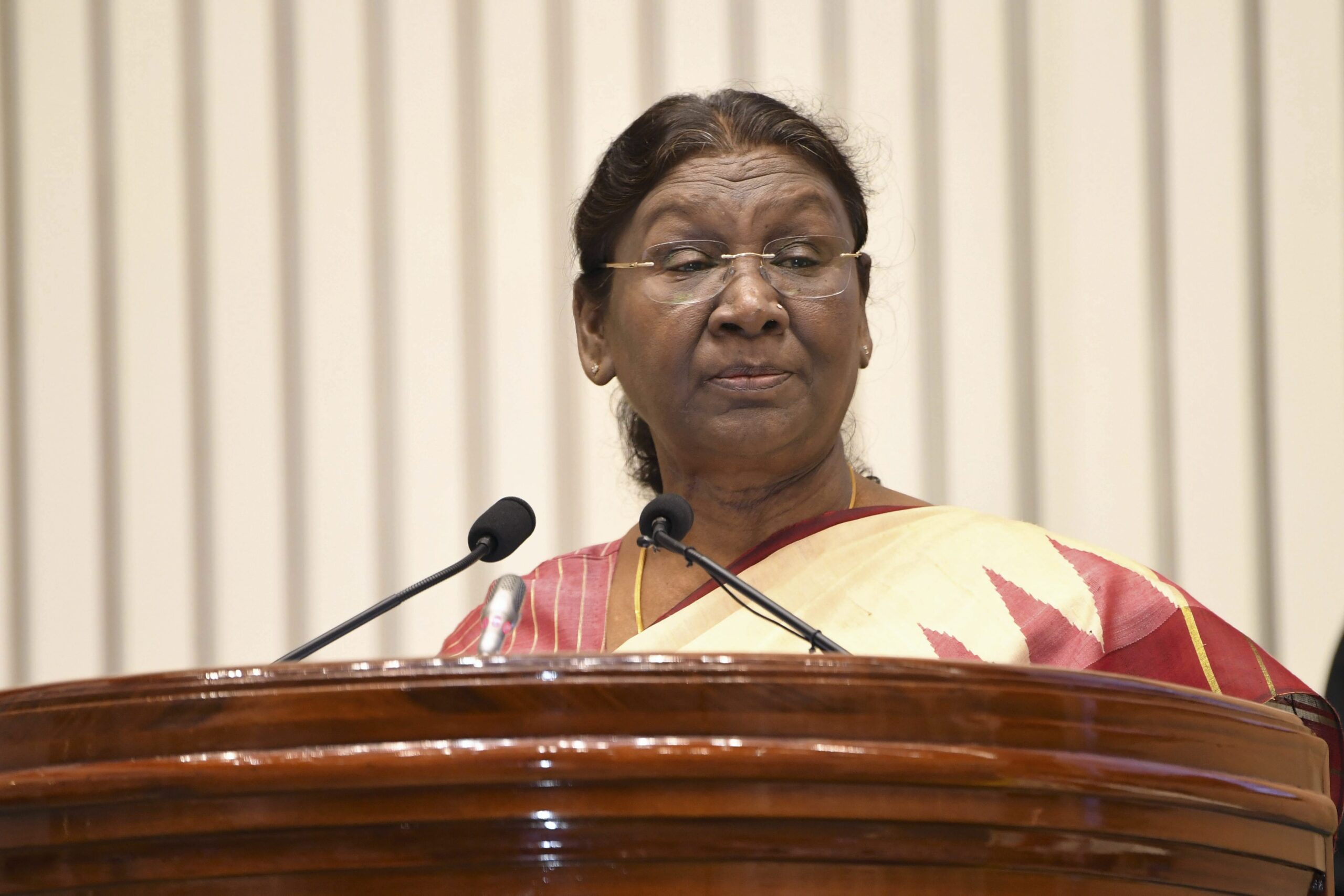
President Droupadi Murmu, addressing the 63rd National Defence College (NDC) course at Rashtrapati Bhavan today, emphasised that India’s security goes beyond just territorial integrity, encompassing economy, environment, energy, and cyber security.
Murmu pointed out the changing global geopolitical dynamics, stressing the importance of preparation for diverse challenges like cyber warfare, tech-fueled terrorism, and climate change. “The fast-evolving geopolitical environment demands a deeper understanding of both national and global issues,” she noted.
Highlighting the need for innovation, she urged for exploring AI applications in addressing these challenges and called for collaboration between government agencies and the corporate sector.
Murmu underscored the value of self-reliance in the current global scenario and said, “Our security concerns are multifaceted, involving various dimensions of well-being.” She further remarked on the expanding role of the armed forces beyond traditional military tasks and highlighted the importance of integrated, multi-agency approaches for future conflicts.
Stressing the importance of defence and security in national progress, the president said, “Real progress hinges on effectively leveraging available resources, particularly human resources.” She emphasised the need for civil and defence services officers to understand the constitutional framework and foster inter-service synergy.
President Murmu lauded the NDC course for its holistic approach in preparing officers for future security challenges, with a curriculum that covers national security, governance, technology, history, and economics. She expressed confidence in the course’s comprehensive training methodology.
The event saw participation from 37 officers representing 27 foreign nations.